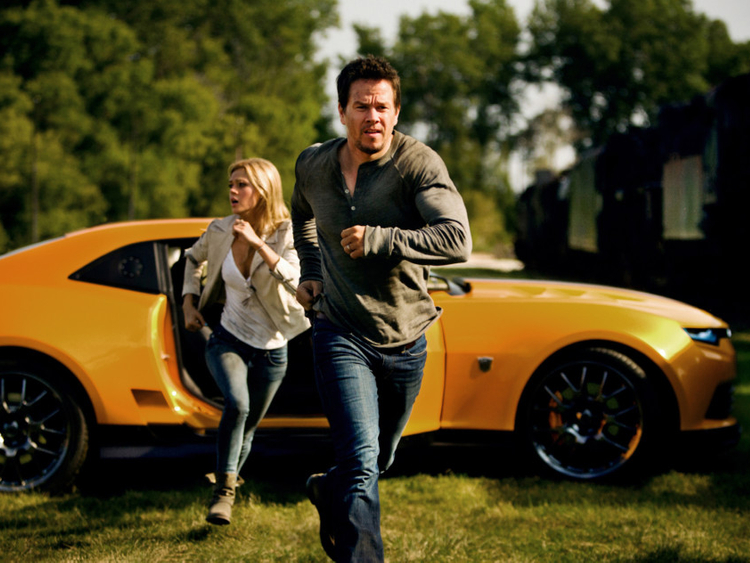
Suicide Squad has notched up $465 million (Dh1.7billion) in global ticket sales despite a 67 per cent drop in North America over its second weekend, confirming its status as one of a growing band of movies that defy largely negative reviews to enjoy strong box office returns.
The success of the latest superhero romp from the DC Comics stable, which was mauled by critics, is in no small part down to a Warner Bros’ marketing blitz.
It included the now familiar trick of cranking out teaser footage online — the first in July 2015, just a few weeks after filming began — to help create a social media buzz around the film among its young target audience long before reviewers could shape perceptions.
The film industry is waiting to see if Suicide Squad goes the same way as its DC Comics stablemate Batman v Superman: Dawn of Justice, another Warner Bros title backed by a huge marketing effort.
It dipped sharply at the box office after a big opening weekend in March as poor reviews caught up with it, but racked up $873 million in sales, the fifth-biggest box office hit of the year so far.
Suicide Squad topped the US box office for a second weekend, despite a drop from the $135m for its opening three days, the best ever for an August release.
International box office takings fell 56 per cent compared with the opening weekend, when the movie earned nearly $15 million in the UK, but still account for just over 50 per cent of total sales. It is already the 11th highest-grossing film worldwide this year.
“Clearly cinemagoers and film fans have access to a much broader range of opinion than just [traditional] critics,” said Phil Clapp, the chief executive of the UK Cinema Association. “The growth of [buzz] on social media can counter negative reviews. While it can also go the other way you typically see with franchises, such as superhero films or those based around books, is a gathering of a fan base around a film. Fifty Shades of Grey is as good an example of that as any. When that happens a film can take on a life almost impervious of critics.”
In January a series of striking, stylised Suicide Squad posters with Day-Glo colours followed Warner Bros’ initial teaser, along with the first official trailer featuring Queen’s Bohemian Rhapsody, which has notched up tens of millions of views. Other promotional stunts included setting up themed tattoo parlours at the South by Southwest and Coachella music festivals.
“We are in a world now where there are 700 or more feature films launched in the UK each year,” says Mark Batey, the chief executive of the Film Distributors Association. “Supply has literally doubled in the last 10 years. The issue is how do you get cut-through from the pack. Remember audiences also have an unprecedented entertainment choice on-demand [at home] and that is the challenge for film distribution companies and marketing. I think the marketing campaign for Suicide Squad was inspired.”
Distributors spent more than ₤200 million (Dh947.63 million) marketing films in the UK alone in the last year, according to WPP’s media buying division Group M.
“Suicide Squad is a big brand and marketing started early with high expectations,” says David Livingstone, a former senior executive at Working Title and Universal, with marketing credits including Bridget Jones’ Diary, Trainspotting, Love Actually and The Usual Suspects.
“They got great cut-through with their materials and you can’t underestimate the great characters that looked cool as [expletive]. Jared Leto as the joker, Margot Robbie as Harley Quinn. The characters looked the sharpest versions from the comics.”
The film has also been lauded for the diversity of its cast — black, white, Asian, Hispanic and Native American people are represented — which also plays well to the widest range of audiences possible. The marketing has been carefully crafted to appeal particularly to younger audiences, vital to keep the film riding high at the box office. It appears to have worked.
Tens of thousands of fans were so incensed at the welter of negative reviews that they signed an online petition calling for the review aggregator Rotten Tomatoes to be shut. Among those under 35 who saw Suicide Squad on the opening weekend the film was given an A- on CinemaScore.
“Younger people, the market that Suicide Squad is most likely after, are not in thrall to traditional media to the same extent as their elders,” says Laurence Thomson, the chief creative officer at the ad agency McCann London.
“There are lots of different interconnected elements to marketing a film, from the poster right through to Tarantino’s preferred method of making as much noise in the media as possible. If one of these elements fails, such as the reviews, it doesn’t necessarily mean box office disaster. A better decider of success can be the story you are telling and the channels you are using.”
Other critic-proof blockbusters
Suicide Squad may have received an especially savage critical mauling, but two big budget franchises show why DC Comics is so keen to turn its stable of superheroes into a box office steamroller, whatever the critics think. In 2003, the first Pirates of the Caribbean film was well received by critics. The reviews became less positive with each subsequent instalment, and the most recent, On Stranger Tides is rated just 32 per cent on Rotten Tomatoes. Despite that, both the second and fourth films took more than $1bn at the box office worldwide, and the third came close with $963 million.
All three are in the top 30 top grossing films of all time.
The other blockbuster franchise seemingly immune to negative reviews is Transformers, which even with its first instalment in 2007 failed to charm critics. Again subsequent releases have been increasingly poorly received by people paid to write about film, but they still pulled in the punters.
The two most recent, Dark of the Moon and Age of Extinction, were ranked at a lowly 35 per cent and 18 per cent respectively by Rotten Tomatoes, but both made more than $1 billion at the box office.
It is little surprise that both Transformers and Pirates of the Caribbean are returning to cinemas in 2017.














